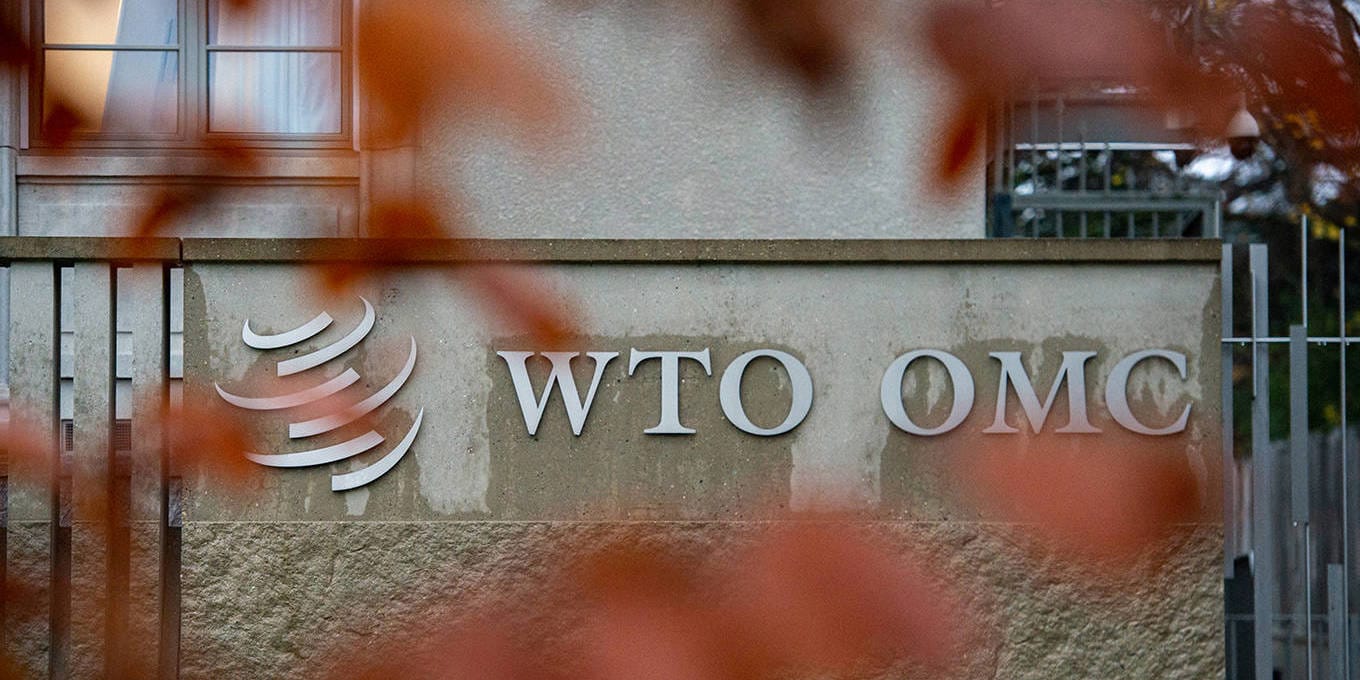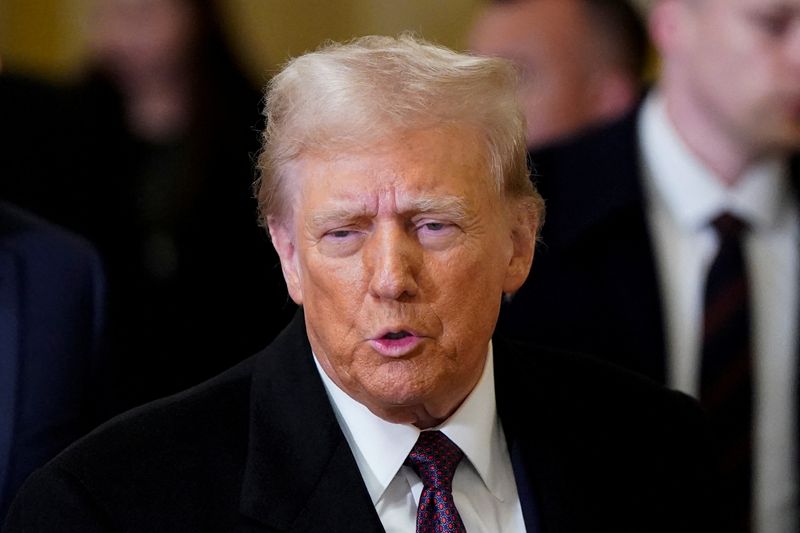Key Takeaways:
I. MC14 offers a critical platform for African nations to advocate for fairer agricultural trade practices, including substantial reductions in trade-distorting subsidies by developed countries.
II. The conference presents a unique opportunity to shape a digital trade framework that promotes inclusive growth in Africa, addressing challenges related to infrastructure, digital literacy, and regulatory harmonization.
III. MC14 is a critical juncture for reforming the WTO's dispute settlement system, ensuring a fair and effective mechanism that upholds the rules-based multilateral trading order and addresses the concerns of all member states, particularly developing nations.
WTO members have agreed that the organization’s 14th Ministerial Conference (MC14) will take place from 26 to 29 March 2026 in Cameroon. This decision, endorsed at the WTO's General Council meeting on December 16, 2024, marks a significant moment for the multilateral trading system and holds particular importance for African economies. Following the 13th Ministerial Conference hosted by the UAE in Abu Dhabi earlier this year, MC14 will be the second Ministerial Conference to be hosted by an African nation, the first being MC10 in Nairobi, Kenya, in 2015. This conference presents a unique opportunity to address critical issues impacting global trade, including agricultural subsidies, digital trade regulations, and the ongoing reform of the WTO's dispute settlement system. The selection of Cameroon reflects the growing recognition of Africa's role in global commerce and provides a platform to address the specific challenges and opportunities facing developing economies.
Leveling the Playing Field: Addressing Agricultural Subsidies and Their Impact on Africa
Agricultural subsidies provided by developed countries, estimated by the OECD to exceed US$700 billion annually, have long been a source of contention in global trade. These subsidies, while intended to support domestic farmers, often lead to overproduction and depressed global prices, creating significant challenges for agricultural producers in developing countries, particularly in Africa.
African farmers, lacking comparable levels of government support, struggle to compete with subsidized agricultural products from developed nations. This unfair competition results in lower incomes for African farmers, reduced investment in the agricultural sector, and hinders the diversification and growth of African economies. Reports from the World Bank, IMF, and African Development Bank provide further evidence of the negative impacts of trade-distorting agricultural policies on African economies.
MC14 presents a crucial opportunity for African nations to advocate for significant reductions in trade-distorting agricultural subsidies. This requires a coordinated effort, leveraging the platform of MC14 to push for meaningful reforms within the WTO's Agreement on Agriculture. Forming strategic alliances with other developing countries and utilizing existing regional trade agreements (RTAs) in Africa can amplify their collective voice and increase their bargaining power in the negotiations.
Beyond advocating for external policy changes, African nations must also prioritize domestic investments in agricultural infrastructure, technology, and capacity building. Improving productivity, enhancing market access through regional integration initiatives like the AfCFTA, and diversifying agricultural production are crucial for building resilience and fostering sustainable growth within the sector. These domestic efforts, combined with international advocacy for fairer trade practices, are essential for transforming African agriculture and unlocking its full potential.
Digital Trade: A Pathway to Inclusive Growth and Development in Africa
The rapid growth of digital trade and e-commerce presents immense opportunities for African economies. With a projected market size of US$939.8 billion by 2032, e-commerce has the potential to drive economic growth, create jobs, empower entrepreneurs, and integrate African businesses more fully into the global digital economy.
However, significant challenges must be addressed to fully realize this potential. Limited internet penetration, particularly in rural areas, inadequate digital infrastructure, and low digital literacy rates, as documented by the ITU and UNESCO IITE, pose significant obstacles to the widespread adoption of e-commerce. Bridging the digital divide through investments in infrastructure and digital skills training is essential for ensuring inclusive participation in the digital economy.
MC14 offers a crucial platform for African nations to advocate for policies that promote digital inclusion and create a supportive regulatory environment for e-commerce. This includes fostering investment in digital infrastructure, developing comprehensive digital trade regulations that facilitate cross-border data flows while ensuring data protection, and promoting public-private partnerships to enhance digital literacy and skills development.
Harmonizing digital trade regulations across the continent, particularly within the framework of the African Continental Free Trade Area (AfCFTA), is essential for creating a predictable and enabling environment for businesses engaged in e-commerce. This harmonization will facilitate cross-border trade, reduce transaction costs, and unlock the full potential of the digital economy in Africa.
Restoring Confidence: Reforming the WTO's Dispute Settlement System
The WTO's dispute settlement system, a cornerstone of the multilateral trading system, is facing a critical challenge with the ongoing Appellate Body impasse. Since December 2019, the Appellate Body has been unable to issue binding rulings due to the blockage of new judicial appointments. This dysfunction undermines the rule of law in international trade, creating uncertainty and potentially escalating trade tensions.
MC14 presents a crucial opportunity to address this impasse and revitalize the WTO's dispute settlement system. A key area of focus must be on the selection process for Appellate Body members. The current system, which relies on consensus among WTO members, has proven susceptible to political maneuvering and deadlock. Exploring alternative selection mechanisms, such as a voting system or a nominating committee, could help depoliticize the process and ensure the timely appointment of qualified judges. Furthermore, clarifying the scope of the Appellate Body's authority and addressing concerns about judicial overreach are essential for building consensus and restoring confidence in the system. A reformed dispute settlement system is vital for maintaining the credibility and effectiveness of the WTO and ensuring a level playing field for all participants in international trade, particularly developing nations who often lack the resources to pursue alternative dispute resolution mechanisms.
MC14: A Defining Moment for the Future of Global Trade
The 14th WTO Ministerial Conference in Cameroon represents a defining moment for the future of global trade. For African nations, it is a unique opportunity to advocate for their interests, address historical trade imbalances, and shape a more equitable and sustainable trading system. For the WTO as a whole, MC14 is a critical test of its ability to adapt, reform, and deliver on its promise of a rules-based system that benefits all members. The decisions made in Cameroon will have far-reaching consequences, shaping the landscape of international trade and influencing the trajectory of global economic development for years to come. The success of MC14 hinges on the active and constructive engagement of all stakeholders, working together to build a more inclusive, resilient, and prosperous future for global trade.
----------
Further Reads
I. Agricultural subsidies: Everyone's doing it | Hinrich Foundation
II. THE PERSISTENCE OF AGRICULTURAL EXPORT ...
III. The Political Effects of Agricultural Subsidies in Africa: Evidence from Malawi - PMC









